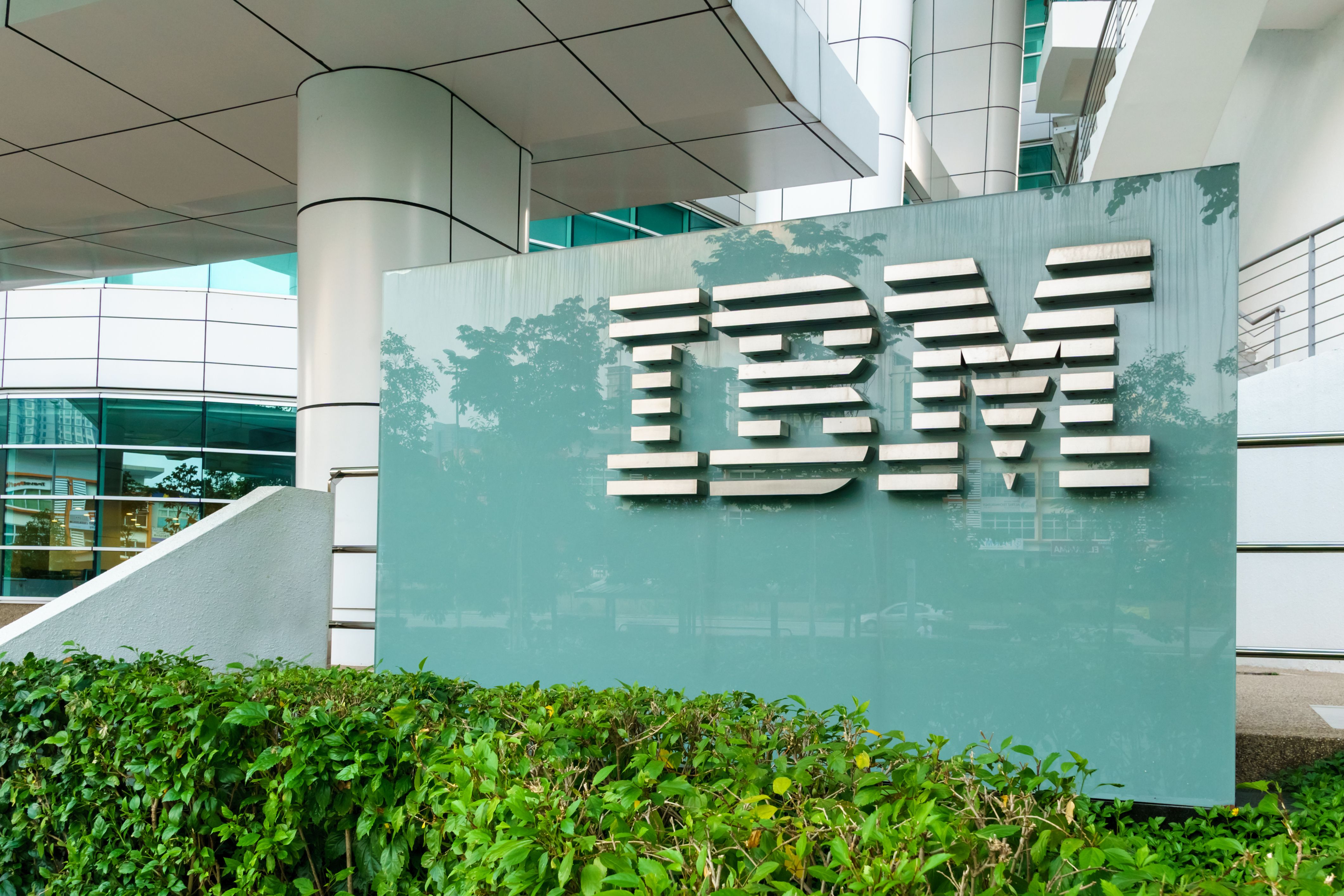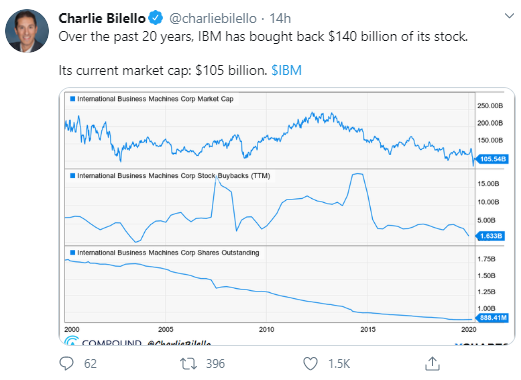In the past two decades, corporations have been buying their own stocks in record amounts. However, in the case of IBM, it didn’t do it much good.
Share buybacks by corporations have been rightfully criticized in the past few months. Many corporations opted for short-term rewards over long-term planning. Airline companies and other corporate giants are asking for bailouts to front the bill caused by their own recklessness.
IBM, however, may be among the worst offenders of stock buybacks—the losing strategy did not even help boost its market capitalization.

Share Buybacks Run Out of Steam
According to Charlie Bilello, CEO Of Compound Capital Advisors, IBM demonstrates how stock buybacks are based on bad short-term thinking.
Financial Markets vs. the Real Economy
The two months have demonstrated a deep disconnect between the financial markets and the real, structural economy. Stock buybacks are therefore just a piece of the greater story. Repeatedly, U.S. financial markets have rallied on higher-than-expected jobless claims. It increasingly seems like the financial sector has become less representative of the real economy but is instead representative of the Fed’s balance sheet. As more and more corporate earnings reports are released in the coming weeks, we may see financial markets take a turn for the worse. The economic rebound will ultimately be dependent on things going back to normal—but it’s unlikely that consumer spending will go back to what it was anytime soon. In a deflationary crisis with lackluster demand, those companies that saved and had long-term plans will be the winners. Those that spent their profits buying their own shares like IBM are now asking for help. Given the current state of things, it seems unlikely that taxpayers will be happy to do so.Disclaimer
In adherence to the Trust Project guidelines, BeInCrypto is committed to unbiased, transparent reporting. This news article aims to provide accurate, timely information. However, readers are advised to verify facts independently and consult with a professional before making any decisions based on this content. Please note that our Terms and Conditions, Privacy Policy, and Disclaimers have been updated.

Advertorial
Advertorial is the universal author name for all the sponsored content provided by BeInCrypto partners. Therefore, these articles, created by third parties for promotional purposes, may not align with BeInCrypto views or opinion. Although we make efforts to verify the credibility of featured projects, these pieces are intended for advertising and should not be regarded as financial advice. Readers are encouraged to conduct independent research (DYOR) and exercise caution. Decisions based on...
Advertorial is the universal author name for all the sponsored content provided by BeInCrypto partners. Therefore, these articles, created by third parties for promotional purposes, may not align with BeInCrypto views or opinion. Although we make efforts to verify the credibility of featured projects, these pieces are intended for advertising and should not be regarded as financial advice. Readers are encouraged to conduct independent research (DYOR) and exercise caution. Decisions based on...
READ FULL BIO
Sponsored
Sponsored
